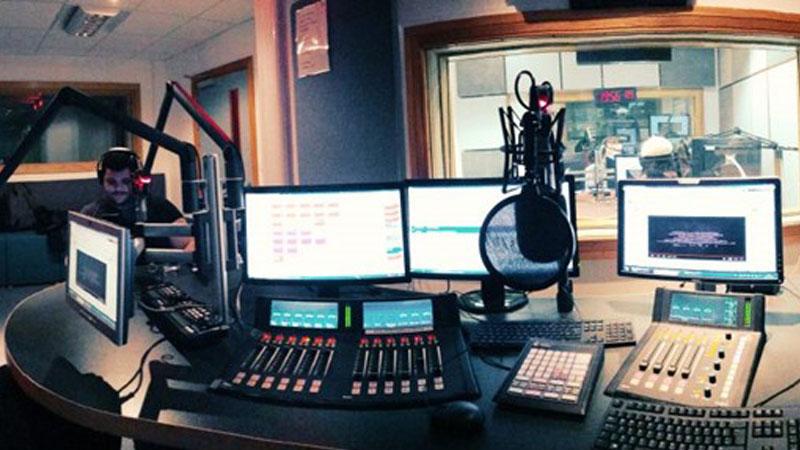Smoke Radio is the University’s award-winning student radio station, featuring news, interviews and podcasts. In an interview, Olivia Otts, the former Smoke Radio station manager and Film BA student, talked about her career aspirations and how joining the University’s radio station can give Westminster students invaluable employability skills.

Can you tell us more about Smoke Radio?
Here at Smoke Radio we are excited for the relaunch of the radio station in a hybrid virtual streaming format. Over the years, the station has produced shows and original podcasts from our studio in Harrow Campus and also from satellite studios at the Cavendish Campus. Prior to the pandemic, the radio station won eight awards at the Student Radio Association, including Best Student Radio Station, sponsored by BBC Radio 1. As part of that win, some of the Smoke Radio students hosted their own shows over Christmas on BBC Radio 1, which was an incredible opportunity.
Can you tell us more about yourself?
As the Station Manager, my role [was] to reinvent Smoke Radio for a hybrid, post-pandemic phase, ensuring that our members can participate from anywhere and with any level of experience.
Prior to joining the station, some of my previous roles include being a producer for the BBC’s 50:50 Equality Project, an intern for an academic conference on media archives and ethics, and a producer of both scripted and branded projects within my Film BA course, amongst other valuable experiences. This range reiterates that Smoke Radio is keen on many areas of expertise both within and beyond radio, as all backgrounds can bring a valuable skill set to the table.
What’s your favourite thing about Smoke Radio?
The journalism strand of Smoke Radio is where I started, and it remains the area that I align closest to. In 2020, against the backdrop of the US election, we produced content that reflected the personal experiences of the UK and international students alongside policy analysis. The combination of the factual with the personal is key to the success of broadcast journalism – without a heart to the story, you just have a list of headlines.
I’ve personally found interviewing students to be one of the most fascinating parts of the Smoke Radio process, as it helps us to uncover unexpected success stories. An awareness of the achievements and aspirations of our own peers is both inspiring and a great resource for potential future collaborations. The station also covers the Students’ Union elections and news events, which are key to community organisation and changemaking.
Why should students join Smoke Radio?
Joining Smoke Radio has been an invaluable experience. Harder skills such as broadcast regulations, ethics, equipment usage, and audio editing are essential for a wide range of creative disciplines post-graduation, from radio and PR to journalism. While some of the online workflows and streaming processes are technical, they maintain the core elements of creativity that make Smoke Radio such a worthwhile endeavour. The associated skills of community outreach, industry networking, project management, and teamwork are applicable across all disciplines.
As a career mentee learning from journalists at the BBC World Service, I’ve learned that broadcasting, research, and production career paths attract people of many specialisms. Recruiting new members is always an exciting part of the process, as we are continually impressed by the range of experience and interests represented by Westminster’s student body.
How can students get involved with the radio station?
Students who are interested in getting involved in our station relaunch can join in a wide range of positions, from marketing and technical to music and events. Smoke Radio is available to all the students, regardless of their experience.
Find out more about Smoke Radio at the University of Westminster.




